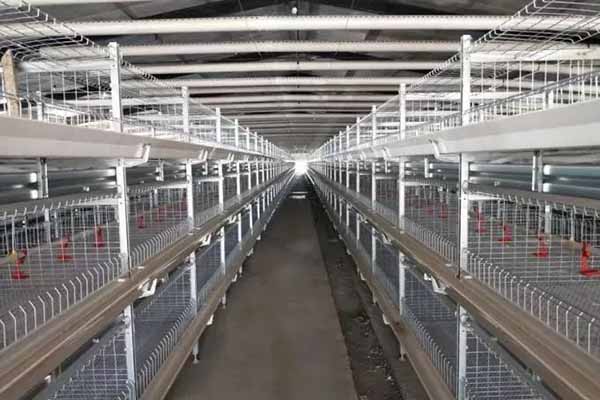Poultry Farming Suppliers for Integrated Systems: Enhancing Efficiency and Productivity
Time : 2025-06-27
Poultry farming has evolved significantly over the years, and the adoption of integrated systems has become crucial for maximizing efficiency and productivity. With the increasing demand for poultry products globally, suppliers specializing in integrated systems have become vital for the industry. This article aims to explore the role of poultry farming suppliers for integrated systems, highlighting the importance of these systems and the benefits they offer to farmers.
Understanding Integrated Systems in Poultry Farming
Integrated systems in poultry farming refer to the combination of various components, including housing, feed, water, lighting, ventilation, and biosecurity measures, all working together to optimize the growth and health of the birds. These systems are designed to create an environment that promotes rapid growth, disease resistance, and minimal waste.
Components of Integrated Systems
1. Housing: The design and construction of poultry houses play a crucial role in the success of integrated systems. Efficient housing should ensure adequate space for the birds, provide proper ventilation, and protect them from external factors like extreme weather and predators.
2. Feed and Water: A balanced diet and clean water are essential for the health and growth of poultry. Integrated systems include automated feeders and waterers that ensure the birds receive the right nutrients and hydration throughout their lifecycle.
3. Lighting: Proper lighting is crucial for controlling the growth rate and health of poultry. Integrated systems incorporate automated lighting schedules that simulate natural day and night cycles, promoting optimal growth and egg production.
4. Ventilation: Good ventilation is vital for maintaining a healthy environment within the poultry house. Integrated systems incorporate automated systems that monitor and control the airflow, temperature, and humidity to create an ideal atmosphere for the birds.
5. Biosecurity: Preventing the introduction and spread of diseases is essential in poultry farming. Integrated systems implement biosecurity measures such as controlled access to the farm, disinfection protocols, and regular monitoring of the flock’s health.
The Role of Poultry Farming Suppliers for Integrated Systems
Poultry farming suppliers specializing in integrated systems play a critical role in ensuring that farmers have access to the latest technologies and expertise needed to create an optimal environment for their birds. Here are some key aspects of their role:
1. Supplying High-Quality Equipment
Suppliers provide a wide range of equipment tailored to meet the specific needs of integrated poultry farming systems. This includes housing structures, feeders, waterers, lighting systems, and ventilation equipment. By sourcing high-quality equipment, suppliers ensure that farmers can maintain an optimal environment for their birds.
2. Offering Customized Solutions
Every poultry farm is unique, and suppliers understand the importance of tailoring solutions to individual farm requirements. They work closely with farmers to assess their needs and design integrated systems that optimize their farm’s performance.
3. Providing Technical Support and Training
Suppliers offer technical support and training to farmers to ensure they can effectively operate and maintain their integrated systems. This includes training on equipment usage, biosecurity protocols, and monitoring bird health.
4. Promoting Sustainable Practices
As the poultry industry continues to grow, sustainable practices are becoming increasingly important. Suppliers help farmers implement eco-friendly solutions, such as energy-efficient lighting and water-saving technologies, to reduce their environmental footprint.
Benefits of Integrated Systems in Poultry Farming
Integrated systems offer numerous benefits to poultry farmers, including:
1. Improved Productivity
By creating an optimal environment for poultry, integrated systems help to reduce mortality rates, improve growth rates, and increase egg production. This ultimately leads to higher yields and better profitability for farmers.
2. Enhanced Animal Welfare
Integrated systems promote the well-being of poultry by ensuring proper ventilation, temperature control, and biosecurity measures. This leads to healthier birds, reducing the risk of disease outbreaks and improving the overall quality of the final product.
3. Cost-Effective Operation
By optimizing resource use and minimizing waste, integrated systems can help reduce operating costs for farmers. Automated systems for feed and water, as well as energy-efficient lighting and ventilation, contribute to cost savings over time.
4. Reduced Environmental Impact
Sustainable practices implemented through integrated systems can help reduce the environmental impact of poultry farming. By using renewable energy sources and minimizing water consumption, farmers can contribute to a more sustainable future.
Conclusion
Poultry farming suppliers for integrated systems are essential partners for farmers looking to maximize efficiency and productivity in their operations. By providing high-quality equipment, customized solutions, technical support, and training, these suppliers help farmers create optimal environments for their birds, resulting in improved yields, better animal welfare, and reduced environmental impact. As the poultry industry continues to evolve, integrated systems will play a vital role in shaping its future.












